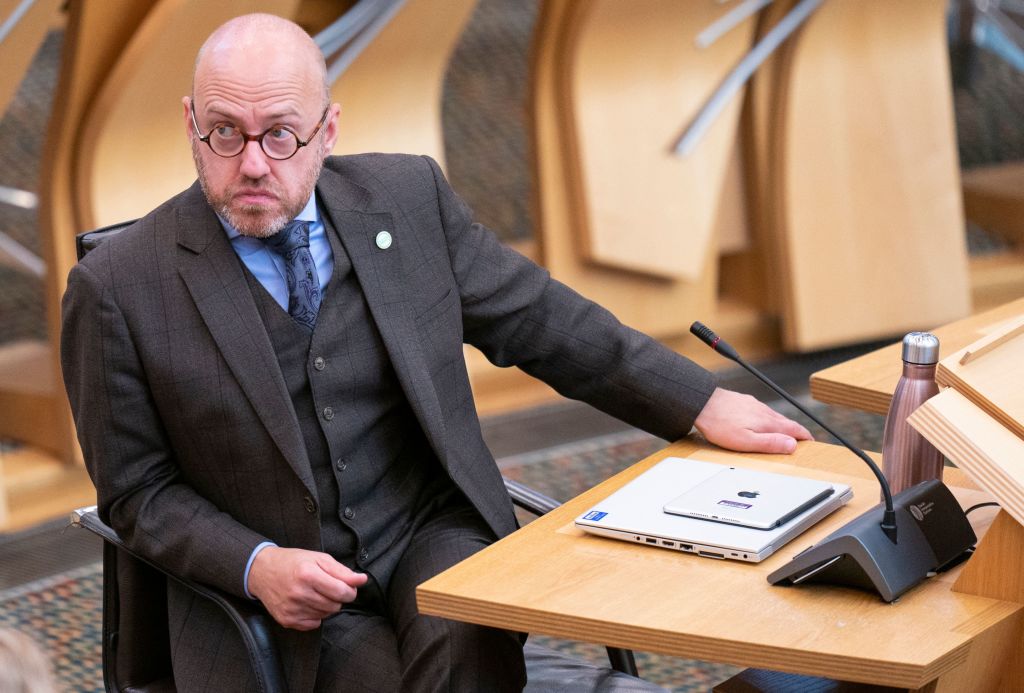When the SNP-Scottish Green Party power-sharing deal was signed in 2021, it was supposed to herald a new era of cooperation in devolved politics. It was supposed to unite Scotland’s pro-independence parties and force the UK Government to deliver a second referendum on Scottish secession. It was supposed to ensure Scotland was a “world leader in confronting the climate emergency”.
Three years later, however, and not only have none of those lofty ambitions been realised, but the power-sharing deal itself is increasingly in jeopardy, as Green co-leader Patrick Harvie has conceded that the coalition between the two parties may not hold. Today, Alba MSP Ash Regan tabled a no-confidence motion in Harvie after he refused to accept the findings of the Cass Report on gender identity, which he denied was a “valid scientific document”.
The prospect of a second independence referendum did recede in late 2022, when the Supreme Court ruled the Scottish Government had no power to organise a vote of its own, and Westminster remained unwilling to grant one.
But the real pressure on the Bute House Agreement — as the SNP-Scottish Green power-sharing deal is grandly titled — began earlier this month. On 18 April, Scotland’s Net Zero Secretary, Maìri McAllan, confirmed the SNP-Green administration had been forced to drop its target to reduce carbon emissions by 75% before 2030, as well as abandon annual reporting on its progress towards reducing emissions. The announcement was a deep humiliation for the SNP, which had frequently boasted how Scotland had “the most stretching [emissions reduction] targets in the world”.
But it was more damaging still for the credibility of the Scottish Green Party, which — still an environmentalist party at heart, at least in theory — had supported an even more ambitious (and unfeasible) 80% reduction in emissions by 2030. Harvie admitted the failure to meet the 2030 target left him “angry and disappointed” but many grassroots activists feel this is not enough, and have forced an emergency vote, currently planned in May, on whether the power-sharing agreement itself should be scrapped.
The row over emissions targets in particular is reminiscent of when the Liberal Democrats — themselves in coalition after the 2010 election — broke their pledge not to raise tuition fees, with Harvie’s credibility among activists and voters at risk of being undermined just as Nick Clegg’s was.
Yet it would be a mistake to view the threat to the Bute House Agreement as coming solely from the Scottish Green Party. Many in the SNP have been equally discontent with the power-sharing deal since its inception and would be happy to see it scrapped. Former SNP Health Secretary Alex Neil spoke for many when he warned this week that sharing government with the Green Party had done “enormous damage” to the Nationalists’ credibility.
For his part, First Minister Humza Yousaf seems determined to stick by his Green colleagues, having repeatedly refused to countenance terminating the power-sharing agreement since he inherited the SNP leadership from Nicola Sturgeon more than a year ago. Yet his will alone may not be enough to stem the growing discontent with the arrangement among members in both parties. If the dissent cannot be contained, it risks making the SNP appear even more divided just months away from what is already anticipated to be a tricky general election campaign.
Should that happen, far from helping solidify the pro-independence cause, the SNP-Scottish Green Party power-sharing agreement may well prove an important factor in undermining it.











Join the discussion
Join like minded readers that support our journalism by becoming a paid subscriber
To join the discussion in the comments, become a paid subscriber.
Join like minded readers that support our journalism, read unlimited articles and enjoy other subscriber-only benefits.
Subscribe